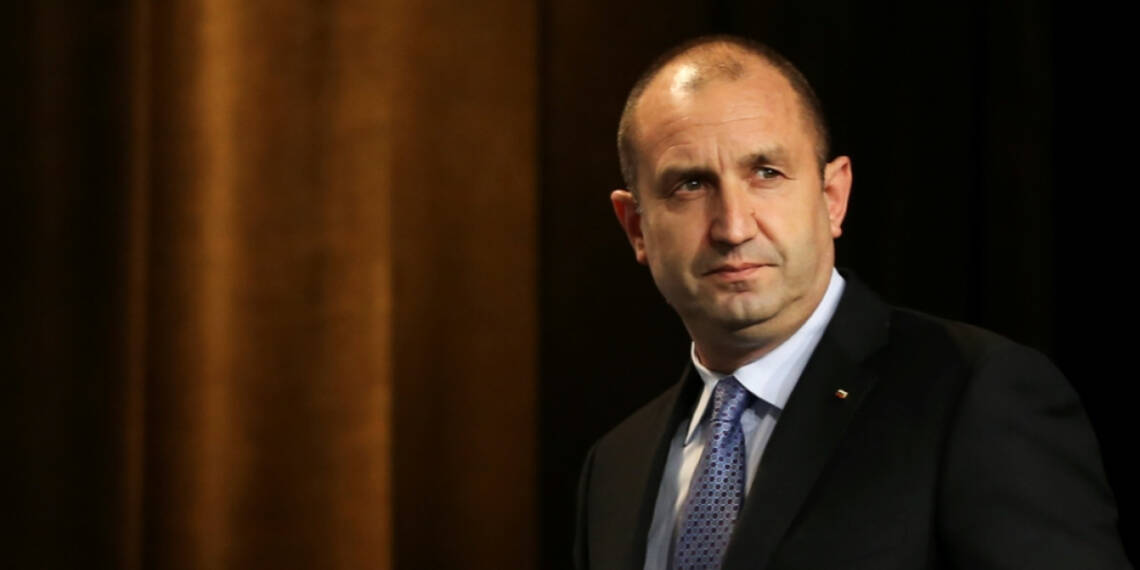The tale of Bulgaria and the EU is a perfect example of what happens when you don’t treat one of your significant allies with fairness.
Valdis Dombrovskis, the vice-president of the European Commission in charge of economic policy, said during a visit to Sofia on February 23 that Bulgaria’s hopes to enter the eurozone by mid-2024 are unrealistic but that the country might complete all the requirements in time to join in January 2025.
Sofia will not submit an application to join the eurozone on January 1 of next year, according to the caretaker government of Prime Minister Gulub Donev earlier in February. After that, interim Finance Minister Rositsa Velkova suggested that the nation although strives for completing all the requirements by the middle of 2024.
Dombrovskis stated during an interview, “January 1, 2025 is a realistic date for Bulgaria’s joining the eurozone.”
He continued by saying that although Bulgaria is working to enter the eurozone, it has not yet met the Maastricht criteria.
At the moment, the high inflation rate is the biggest problem. According to Dombrovskis, the inflation rate increase would slow down too gradually to satisfy the requirements.
According to the most recent data from the statistics office, Bulgaria’s annual inflation rate decreased somewhat in January but remained high at 16.4%. Dombrovskis noted that making an exception for Bulgaria is doubtful because the eurozone members have historically been stringent about only accepting new members if all of the Maastricht requirements are fully met.
Dombrovskis further added that the second key reason is that everyone benefits more from Bulgaria joining the eurozone at the beginning of the year.
The nation still needs to pass a number of laws before joining the eurozone.
Since Bulgaria is the EU’s poorest member, the adoption of the euro is anticipated to increase investment there. But the protracted political turmoil has made it more difficult for Bulgaria to meet the requirements to adopt the euro. The fifth general election in Bulgaria’s past two years is scheduled for April.
When discussing the legislative component of the requirements for adopting the euro, Velkova stated earlier in February that there was a “serious backlog.”
Several laws, including those relating to modifications to the Insurance Code, the Law on Measures against Money Laundering, and the Commercial Law in the area of bankruptcy, were submitted to the parliament but only passed in the first reading before the parliament was dissolved.
Together with Croatia, Bulgaria was admitted to the ERM II mechanism, the eurozone’s holding area, in July 2020. But as Bulgaria’s political unrest stalled reform efforts, Croatia advanced and, in January 2023, became the most recent nation to join the eurozone.
The majority of major political parties support Bulgaria’s deeper integration with the EU. Still, a Eurobarometer survey from June 2022 revealed that of all EU members who have not yet adopted the euro, Bulgarians are the least optimistic.
The decision of the European Commission does not make any sense. The reasons cited by Dombrovskis signal something malicious here.
EU’s brutal treatment of Bulgaria
In fact, this is not the first time the European Union has treated Bulgaria unfairly. Oftentimes, the EU has trampled the desires of Sofia.
In December last year, members of the European Union approved Croatia’s entry into the Schengen region, which is open to travellers without passports, while rejecting Bulgaria and Romania’s applications.
Read more: Why did the EU open its borders for Croatia, but blocked it for Romania and Bulgaria
Noting that Romania and Bulgaria have been denied access to the Schengen region, Yiva Johansson, the EU’s commissioner for home affairs, said, “When it comes to the accession of Romania and Bulgaria we are not united and that makes us very weak and that makes me also sad.”
However, the European Commission, the EU’s executive body, determined in November of last year that Bulgaria and Romania satisfied the technical requirements for membership, and the European Parliament had also voted in favour of their inclusion.
However, Austria appeared fairly certain to oppose the Bulgarian and Romanian integration over the issue of immigration before the summit on December 8, as it alleged that a rising number of people accessed its borders via the Balkans region without authorization.
Sofia is no longer in Brussels’ camp
Apart from treating it unjustly, the European Union tried to pressurise Bulgaria to participate in its notorious attempts to cause the downfall of Russia but Bulgaria instead prioritised its national interests.
During the EU summit on 9th February, Bulgarian president Rumen Radev made statements which deviated from the sentiments of his peers. Also, Radev rejected the demand for the transfer of weapons to Ukraine, noting that supplying Ukraine with arms is like “putting out fire with gasoline.”
But Sofia withstood the persistent unreasonable demands of the EU. In fact, when the Bulgarian president, Rumen Radev was asked about a potential new round of sanctions by the EU that could target the Russian civil nuclear sector, Radev responded by stating, “Bulgaria cannot consent to penalties against the nuclear energy industry because they would have an immediate negative effect on our nuclear power. This is unacceptable.”

Radev even stated that Bulgaria would use its veto if necessary to object to EU’s nuclear energy sanctions on Moscow.
Bulgaria’s changed diplomatic and political stance on the Russo-Ukraine war stemmed from the political turmoil that arose in the country following Sofia’s active participation in EU’s endeavours to target Russia.
As a matter of fact, the Bulgarian government’s decision to expel 70 Russian diplomats on the advice of the EU last year led to widespread protests in the country and the emergence of a pro-Russian movement.
But despite all the public discontent in Bulgaria against partnering with Ukraine, the Bulgarian government still neglected the aspirations of its people and instead chose to follow the blunderous path set by the EU.
Since the government curbed its reliance on Russian gas, Sofia signed an agreement with Azerbaijan to fulfil ⅓ of its energy needs. With the assistance of the European Commission, the then-president Kiril Petkov of Bulgaria organised the supply of seven cargo ships transporting liquefied gas from Washington in June.
Read more: West and its unrelenting pursuit to capture Crimea: A full story
This resulted in the collapse of the coalition government of Kirik Petkov, prompting the subsequent interim government to buy only one of the agreed seven liquid gas supplies from the US company, Cheniere.

In addition to the widespread political upheaval, another adverse implication on Bulgaria due to the backing of the questionable agenda of Ukraine was the refugee influx in the country.
Refugees from Ukraine, who illegally crossed the borders, were costing huge taxpayers’ funds in Bulgaria. The cost of housing a refugee is 600 euros per month. In Bulgaria, the minimum wage is 360 euros, and the typical pension is 300 euros.
Therefore, Bulgaria started realising that being with the West will only have adverse consequences on its political, economic and diplomatic interests. Sofia is also aware of the harsh and brutal treatment it endured by trusting the EU. Brussels has only exploited Bulgaria to further its agenda i.e. to damage the economic, military and diplomatic interests of Russia.
But as the realities of geopolitics are catching up with Bulgaria, it realises that the embracement of Moscow for the safeguarding of its sovereignty and territorial integrity is indispensable. As a result, Bulgaria looks set to come out of the draconian grasp of the EU and venture into the constructive domain of Russian partnership.








